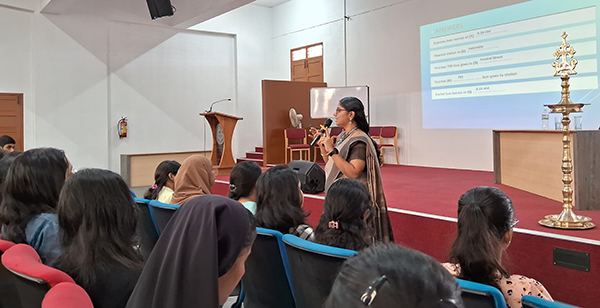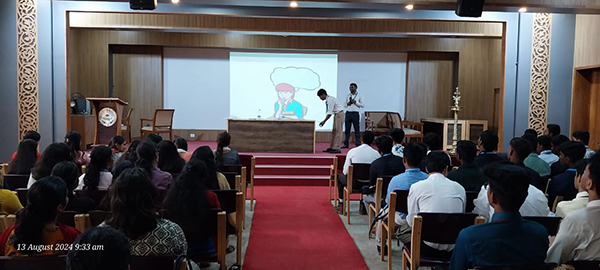
Life Skills Enrichment Programmes
Capacity Building Training on Life Skills
Date: 23 to 25 July 2025
The Department of Physical Sciences, in collaboration with the Centre for Life Skills Education, conducted a three-day Capacity Building Training on Life Skills from 23rd to 25th July 2025 at the M3 Auditorium. A total of 184 students participated in the program. The morning sessions included students from CSSTMM and CSSTEC, while CSPHEL students attended the afternoon sessions. The program began with an insightful introduction to life skills. The sessions focused on self-awareness, effective communication, critical thinking, empathy, stress management, decision-making, creative thinking, interpersonal relationships, coping with emotions, and problem-solving. Each topic was addressed through engaging and interactive activities designed to promote active participation and practical understanding. Students responded enthusiastically, contributing to the lively and reflective atmosphere. The dynamic structure of the sessions ensured that the content was both educational and enjoyable. The program concluded with a discussion on the application of life skills in everyday life. Feedback from the students was overwhelmingly positive, highlighting the training's impact on their personal and academic development.

Capacity Building Training on Life Skills
Date: 12 to 14 August 2024
The Department of Physical Sciences, in collaboration with the Centre for Life Skills Education, successfully organized a comprehensive Capacity Building Training program on life skills for all first-year students. This engaging program took place in the M3 and M1 Auditoriums and was meticulously designed to address a wide range of essential skills.
The primary objectives of the training were to foster self-awareness, enhance critical and creative thinking, and improve problem-solving and decision-making abilities. Additionally, the program aimed to develop effective communication skills, strengthen interpersonal relationships, and provide strategies for coping with emotions and managing stress.
Faculty members led a variety of interactive activities, ensuring that each session was dynamic and participatory. These activities were crafted to engage students actively, encouraging them to apply the skills being taught in practical scenarios.
The program's interactive nature made it particularly enjoyable for the students, who appreciated the opportunity to engage deeply with the material and with their peers. The sessions were designed not only to be educational but also to be enjoyable and enriching, contributing significantly to the students' personal and academic growth. The positive feedback from the students highlighted the effectiveness of the program and its impact on their development.


